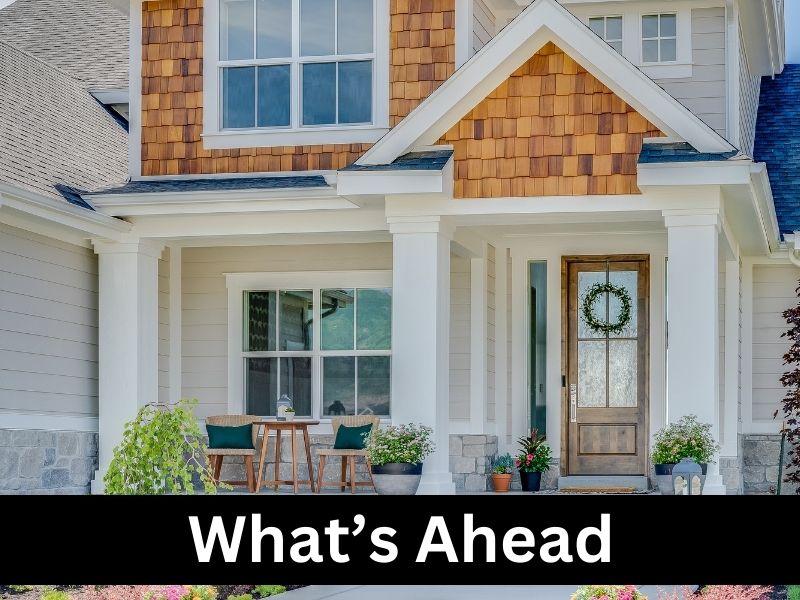What’s Ahead For Mortgage Rates This Week – February 20th, 2024

Last week’s release of CPI and PPI resulted in slightly higher than expected inflation rates which led to speculation that the Federal Reserve’s decision to cut rates will likely come much further in the year than anticipated. There was some suspicion that if inflation rates would continue to exceed predictions, it could result in another rate hike. Lending partners have responded in kind with the first significant increase in lending rates since the end of November. However, The Federal Reserve will likely maintain its current stance.
Other reports such as US Retail Sales are showing a drop, but this is contrasted by the Consumer Sentiment reports which show an opposite effect — with the economic landscape showing an overall declining inflation rate and strong job market.
Consumer Price Index
Consumer prices rose a sharper-than-expected 0.3% in January and the rate of inflation remained stuck above 3% — a small but possibly temporary setback in the Federal Reserve’s fight against inflation.
The consumer price index was forecast to rise 0.2% by economists polled by The Wall Street Journal. The yearly rate of inflation slipped to 3.1% from 3.4% in the prior month. It hasn’t been below 3% since March 2021.
Producer Price Index
Wholesale costs rose in January at the fastest pace in five months, possibly another sign that inflation won’t slow toward the Federal Reserve’s 2% target as fast as hoped.
The producer-price index rose 0.3% last month, a considerably stronger increase than the 0.1% forecast from economists polled by the Wall Street Journal.
Consumer Sentiment Report
The numbers: Consumer sentiment crept up in early February to a 31-month high, fueled by slowing inflation and a strong job market. The first of two readings of the sentiment survey this month rose to 79.6 from 79.0 in January, the University of Michigan said Friday. That’s the highest reading since July 2021.
U.S. Retail Sales
Sales at retailers fell 0.8% in January to mark the biggest drop in 10 months, indicating that Americans took a timeout after a flush of spending during the holiday season.
Primary Mortgage Market Survey Index
• 15-Yr FRM rates saw an increase by 0.22% with the current rate at 6.12%
• 30-Yr FRM rates saw an increase by 0.13% with the current rate at 6.77%
MND Rate Index
• 30-Yr FHA rates are seeing a 0.36% increase for this week. Current rates at 6.65%
• 30-Yr VA rates are seeing a 0.41% increase for this week. Current rates at 6.70%
Jobless Claims
Initial Claims were reported to be 212,000 compared to the expected claims of 220,000. The prior week landed at 220,000.
What’s Ahead
Next week we should be expecting a number of speakers from the Federal Reserve discussing the current state of the economy, PCE Index data releases being the largest releases with minor releases in Advanced Retail Inventory numbers which should indicate the state of consumer spending.

 This week is the release of Core CPI and PPI numbers for January. The only data release of note is the trade deficit and the usual unemployment reports for the prior week. The current trade deficit for the U.S. is operating precisely within expectations and correlating GDP numbers. This current week will provide further guidance for the Federal Reserve as the next release of inflation data is released.
This week is the release of Core CPI and PPI numbers for January. The only data release of note is the trade deficit and the usual unemployment reports for the prior week. The current trade deficit for the U.S. is operating precisely within expectations and correlating GDP numbers. This current week will provide further guidance for the Federal Reserve as the next release of inflation data is released. The largest and most impactful financial data being released is as always the Federal Reserve rate decision. This time it fit well within the expectations across the broader market and lending partners, in that the Federal Reserve still remains to hold the current standing, and is showing push back on any potential rate cuts coming March when the next rate decision is planned.
The largest and most impactful financial data being released is as always the Federal Reserve rate decision. This time it fit well within the expectations across the broader market and lending partners, in that the Federal Reserve still remains to hold the current standing, and is showing push back on any potential rate cuts coming March when the next rate decision is planned.